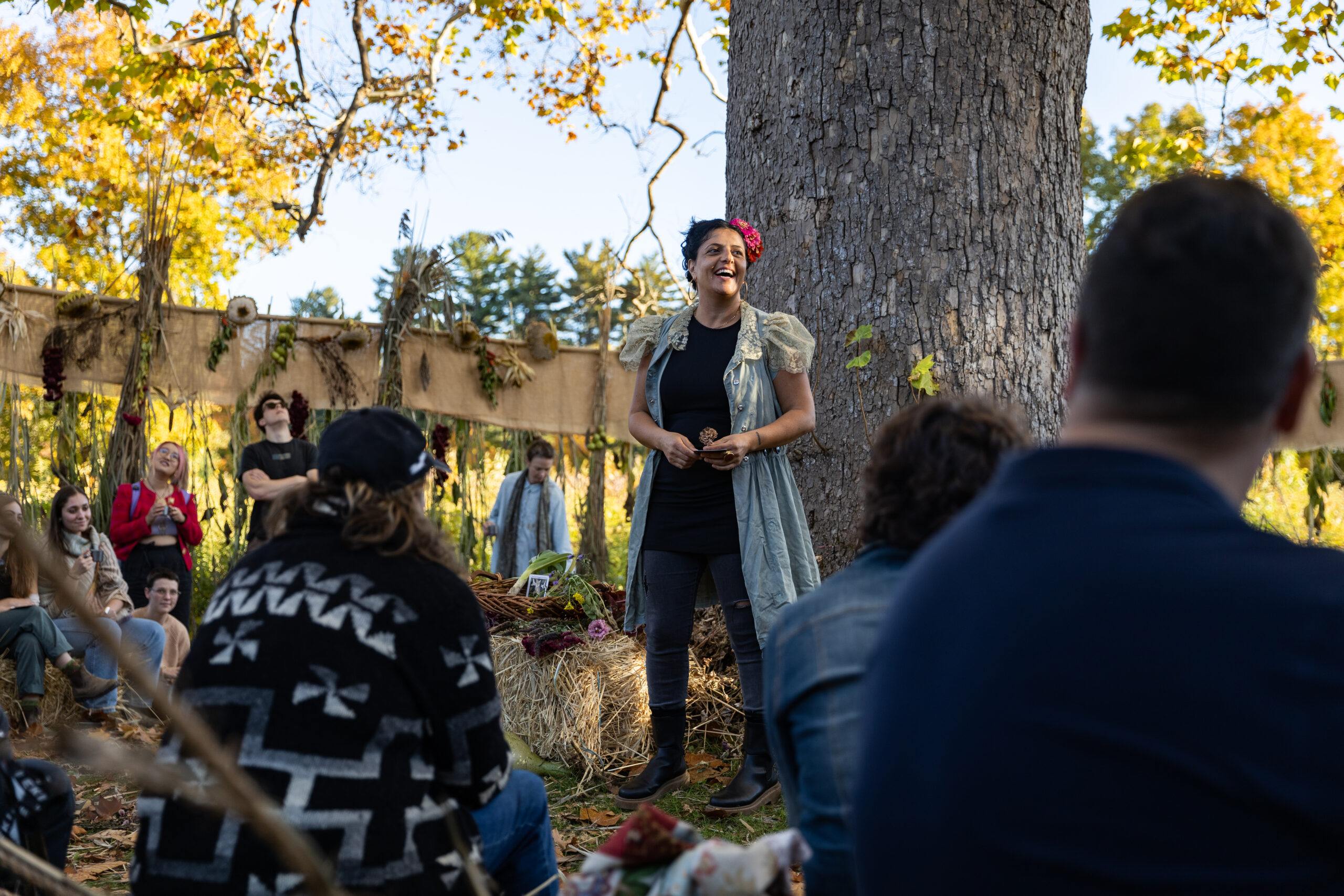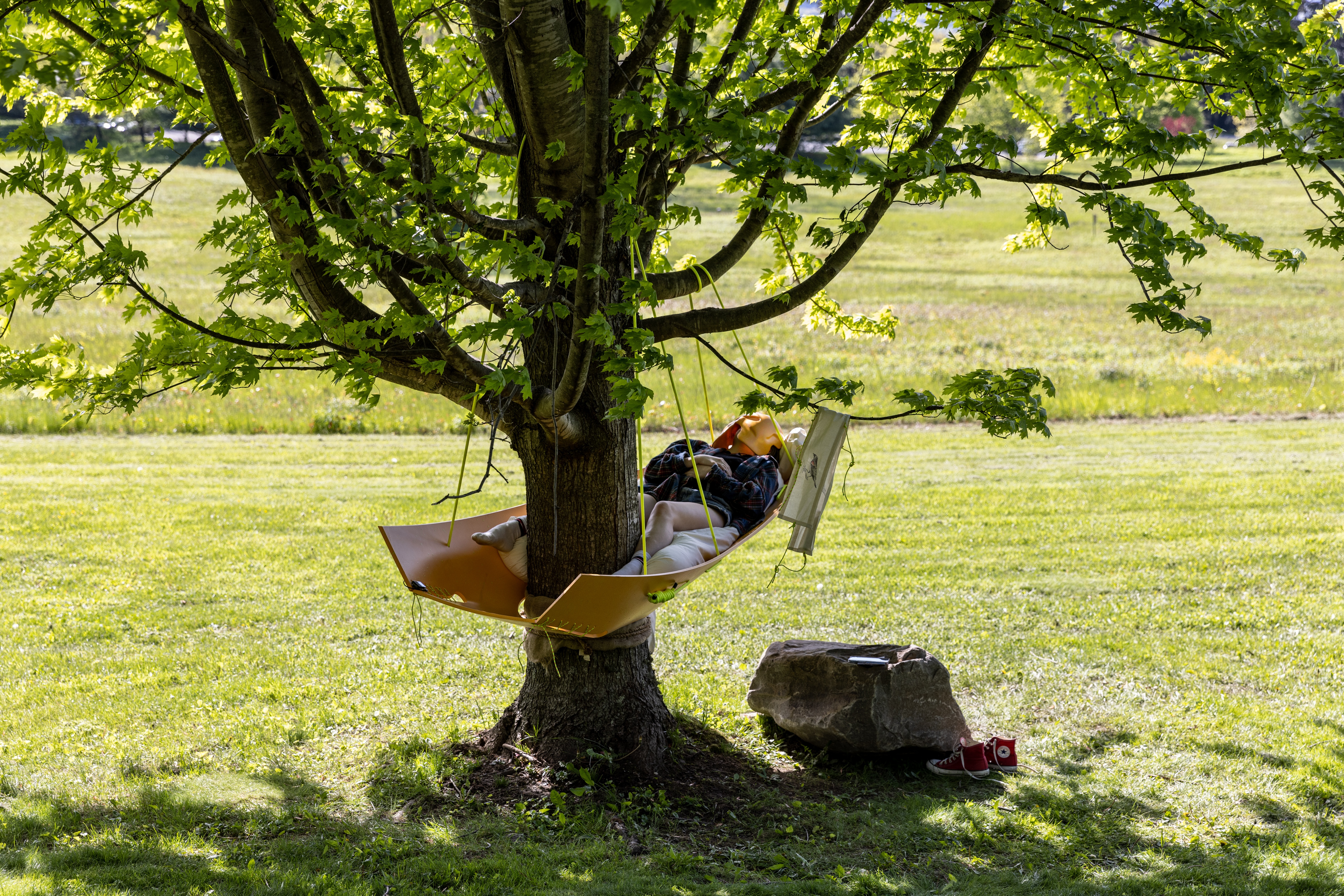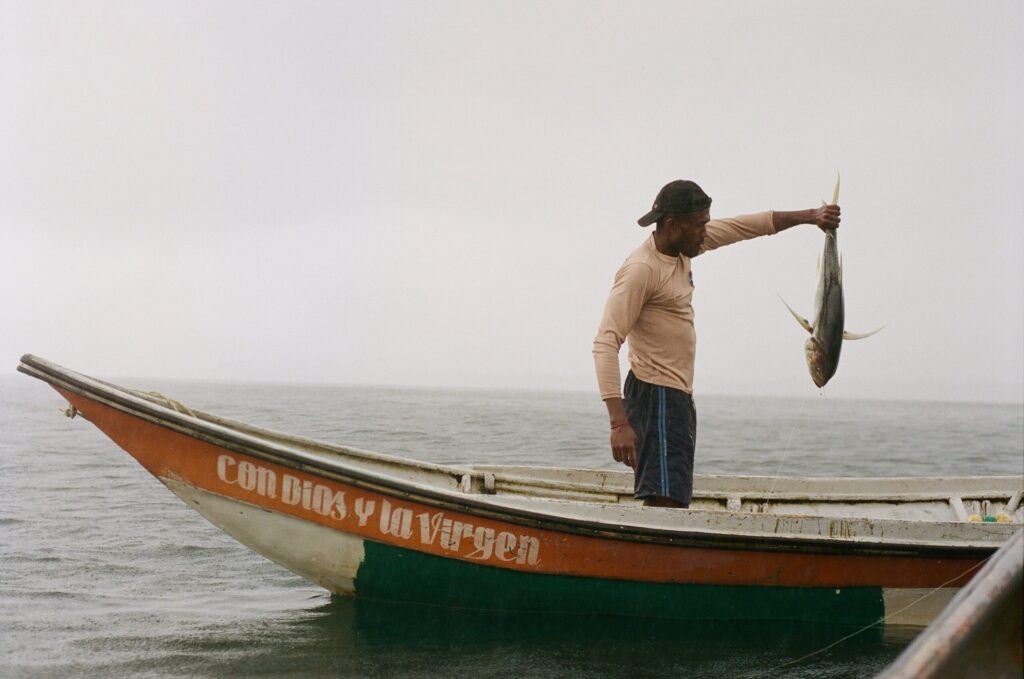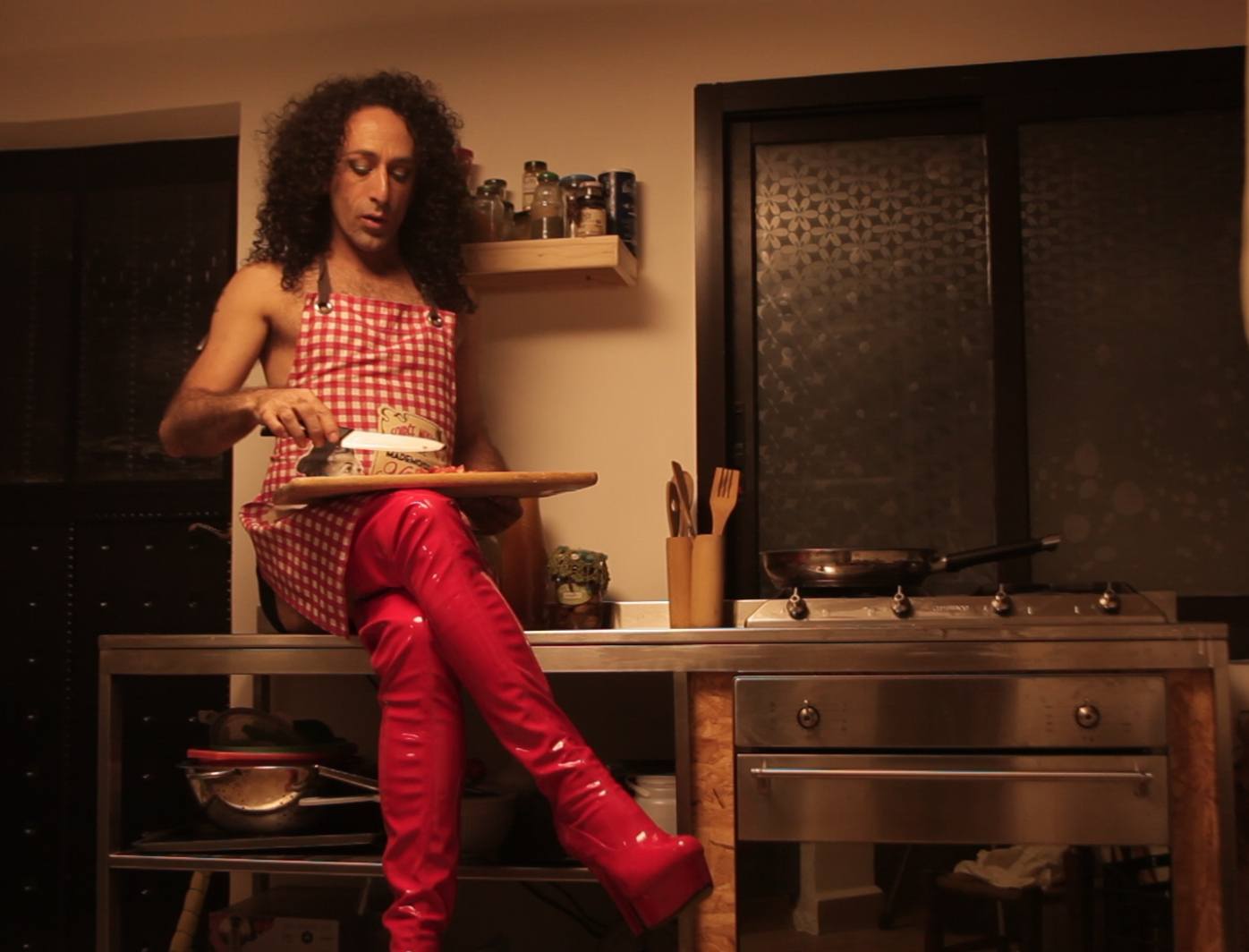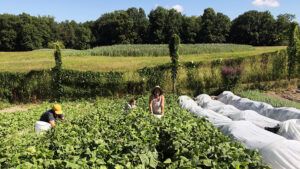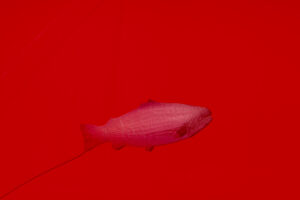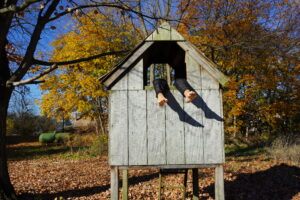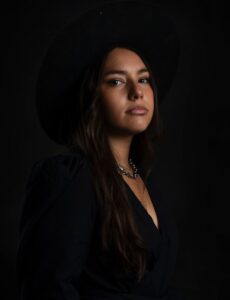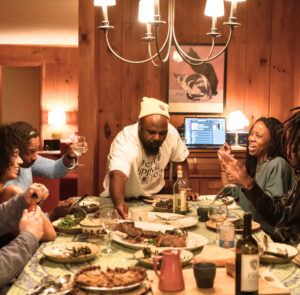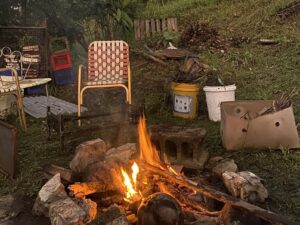Common Ground, the 2022–23 edition of the Fisher Center LAB Biennial, is a year-long international program focusing on the politics of land and food and taking place on four continents.
The festival includes commissioned new works from artists whose practices engage with food sovereignty, climate change, and land rights. Together, they invite us to imagine a more equitable, sustainable, and healthful future.
Common Ground is curated by Tania El Khoury and Gideon Lester, and presented in association with the OSUN Center for Human Rights and the Arts at Bard (CHRA). The Bard iteration of the year-long international program began with two commissioned projects at and around the Fisher Center, at harvest time (October 13–16, 2022) and continued with four commissioned projects in the growing season (May 4–7, 2023).
Credits (Fisher Center)
Co-Curators Tania El Khoury and Gideon Lester
Fall 2022
Cooking Sections
Vivien Sansour
Spring 2023
Kenyon Adams
Tara Rodríguez Besosa
Tania El Khoury
Kite MFA ’18
Curatorial Assistant Melina Roise ’21
Network Project Coordinator Polina Malikin
Festival Production Manager Shannon Csorny
Festival Producers Jason Collins and Caleb Hammons
Festival Photographers Chris Kayden and Maria Baranova
Read the Full ProgramCurators’ Note
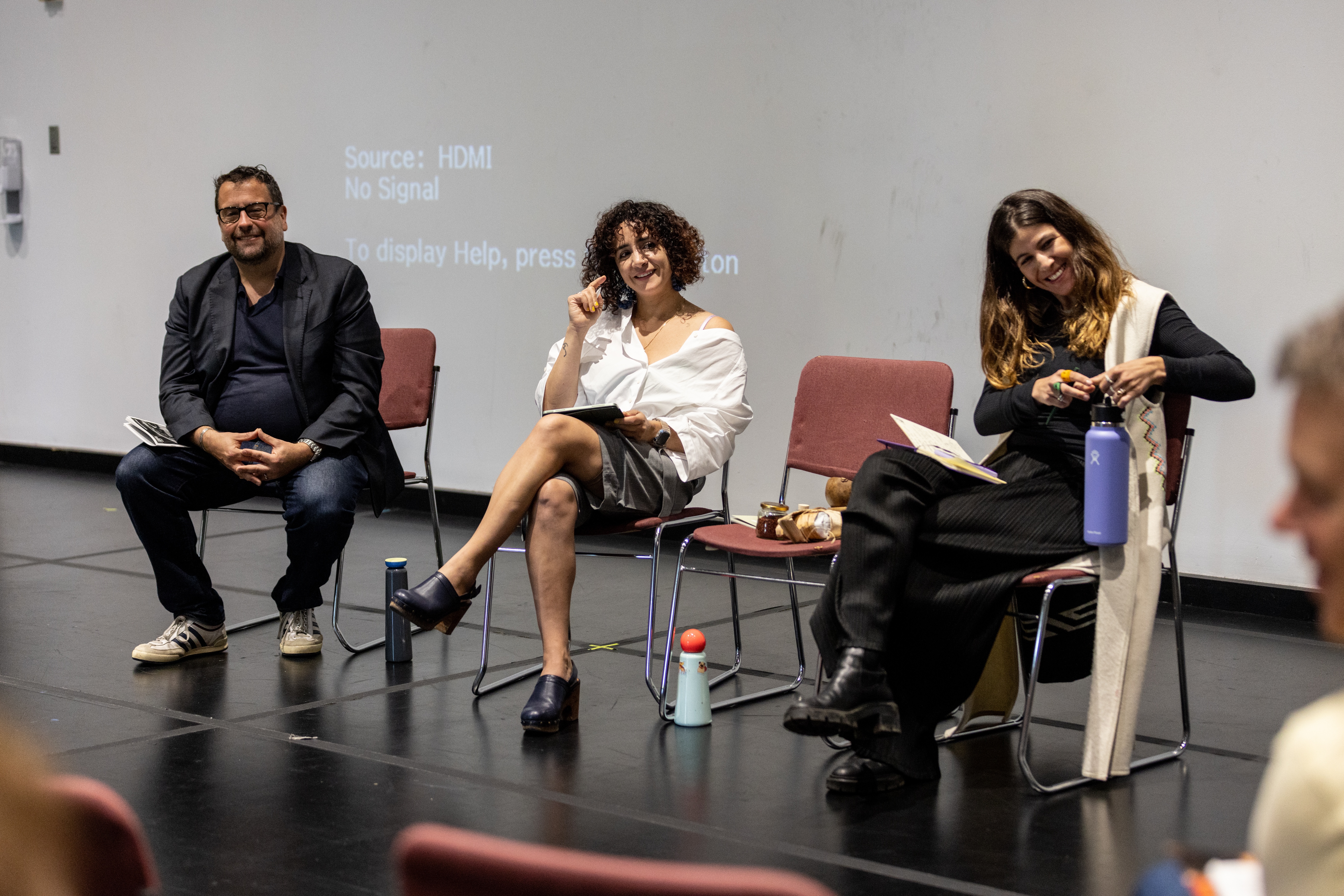
Welcome to the Fisher Center LAB Biennial—a thematic, multidisciplinary art festival in which we commission local and international artists to create works that grapple with some of the most pressing questions of our time.
In this fourth edition, we are partnering with the OSUN Center for Human Rights and the Arts at Bard (CHRA) to create Common Ground, an international festival on the politics of land and food that is taking place simultaneously on four continents. In collaboration with other curators around the world, we have commissioned local artists whose practices engage with food sovereignty, climate change, and land rights. Together they invite us to imagine a more equitable, healthful, and sustainable future.
Access to food and land is a right that is routinely and systematically stripped from a significant number of communities around the world. We recognize that, by examining foodways and land politics in the current climate of wars, the global pandemic, and the human-made climate crisis, we risk presenting an unrelentingly bleak imagination of our shared future. While the artists, curators, and activists in Common Ground certainly critique the political systems that govern relationships to food and land, we hope you will take inspiration from their innovative ideas, their contributions to and witnessing of movements of resistance, and their collaborations with the ecosystems of which they are a part.
Common Ground takes place in the Hudson Valley of New York, Bethlehem in the West Bank, Bogotá and throughout Colombia, as well as Johannesburg and Gqeberha in South Africa. At Bard, we have organized two four-day programs at and around the Fisher Center—one at harvest time (October 13–16, 2022) and the other in the growing season (May 4–7, 2023). The growing season program includes the world premiere of COMMUNION: a ritual of nourishment and commemoration, by artist Kenyon Adams in collaboration with Chef Omar Tate; Somos OtraCosa, a decolonized living manuscript of various human and nonhuman exchanges by artist, architect, and agroactivist Tara Rodríguez Besosa; Memory of Birds, a one-on-one intimate sound installation taking place in the maple trees outside the Fisher Center by the festival’s cocurator Tania El Khoury; and A ̆gúyabskuyela, an experiential performance of Lakhˇóta funeral cakes, by artist and scholar Kite. The harvest season festival included performances and installations by art duo and “climavore” activists Cooking Sections, and by artist and seed conservationist Vivien Sansour.
The festival is in direct conversation with the work of many of our colleagues at Bard and in the OSUN Network. It evolved from the College’s commitment to the study and advocacy of food and farming sustainability, and the building of meaningful relationships with the Stockbridge-Munsee Community on whose land we are uninvited settlers.
The artistic program in Colombia is entitled Ecotone: Chragras, Payaos, Camellones and is curated by Juliana Steiner, in partnership with the Universidad de los Andes; in Palestine, artist Emily Jacir curated a program entitled Revolutionary Letter # 7, in partnership with Al-Quds Bard; in South Africa, artist Boyzie Cekwana curated a program named Umhlaba Wolahleko, in partnership with University of the Witwatersrand. Documentations of the three international festivals are displayed in the Fisher Center’s LUMA lobby along with video works commissioned by CHRA on the politics of food.
Finally, this program has been shaped by conversations that spanned across two years. CHRA and the Bard Farm have programmed a series of digital and in-person talks by international and local artists, scholars, and activists sharing tools, practices, and ideas related to diverse subjects such as foraging under occupation, Black farming, seed preservation, Indigenous land rights, olive harvesting, and “enemy kitchen.”
—Tania El Khoury and Gideon Lester
Works
COOKING SECTIONS
WHEN [SALMON SALMON [SALMON]]
When [Salmon Salmon [Salmon]] is a trilogy of performative installations by Cooking Sections tracing the effects of salmon farms on multiple ecologies. The three works focus on the impact of food production based on extractive systems that push the environment to the verge of collapse.
Shown for the first time in North America, the trilogy portrays farmed salmon as a constructed animal, one of the most recently domesticated and industrialised species in history. The first installation, Salmon: A Red Herring, questions what colours we expect in our ‘natural’ environment. It asks us to examine how our perception of colour is changing as we change the planet. Salmon: Traces of Escapees, explores the environmental impact of salmon farms, which can be traced far beyond the circumference of open-net pens, and everything that escapes through them. The final chapter of the trilogy, Salmon: Feed Chains, subjects the audience to the automated feeding mechanism of the salmon farm. The piece revolves around the eco-systems that are transformed into feed, the landscapes that are fed to farmed fish and the pellets that are consumed by salmon in their feedlots.
VIVIEN SANSOUR
THE BELLY IS A GARDEN
Seed keeper and artist Vivien Sansour invites us to join her in a conversation and site-specific performance that unfolds over a walk through the Bard Farm and the wild landscape that surrounds it. As we walk, we will study the diversity of plants growing there and consider how we share the world and how we interact with it. How does one plot of land produce such a multitude of color and variety? How do these varieties interact with each other to support and enhance their blossoming? We will explore our own origins as seeds, accompanied by a multitude of other living beings so different from us yet complimentary.
KENYON ADAMS
COMMUNION: a ritual of nourishment and commemoration
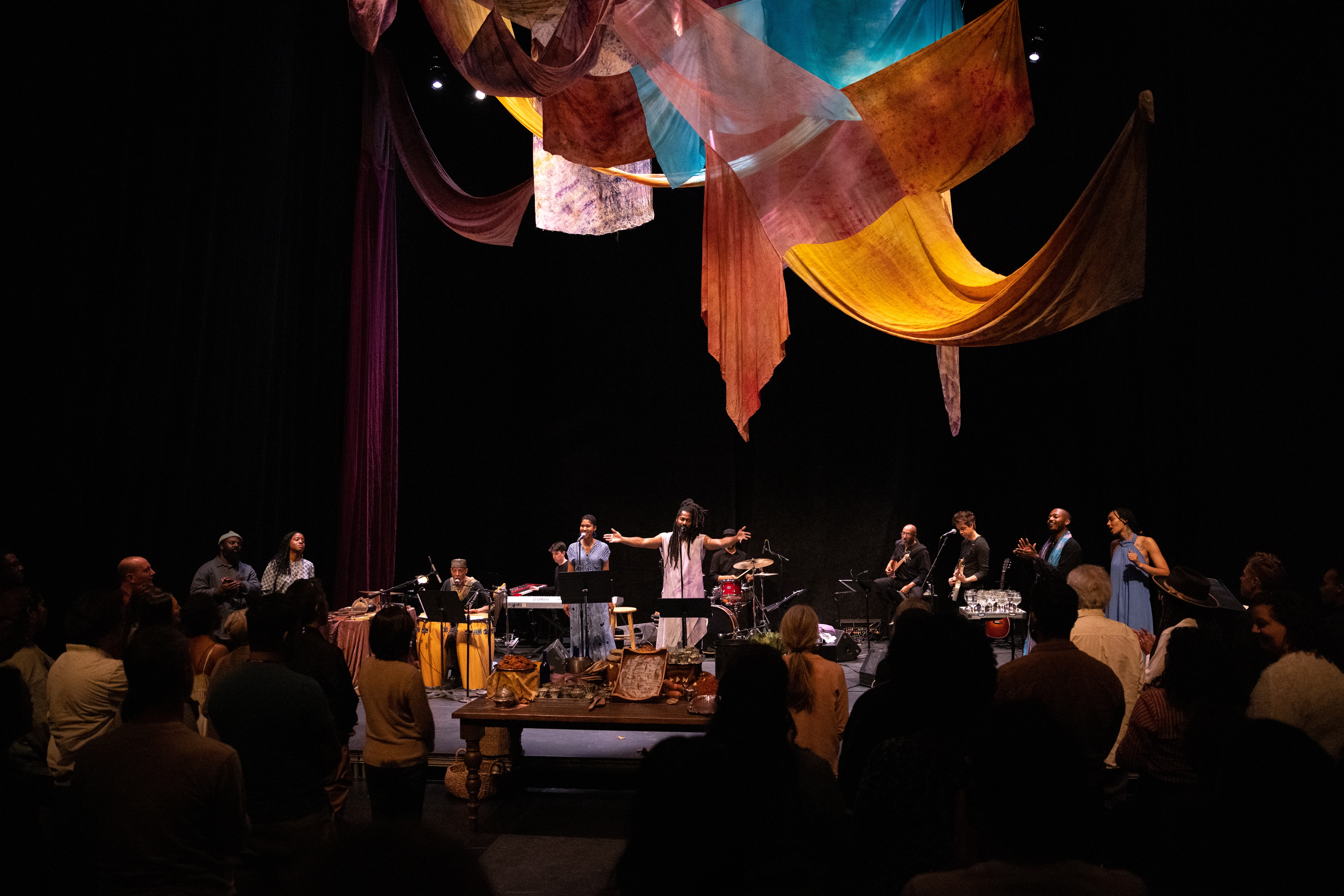
COMMUNION: a ritual of nourishment and commemoration is a participatory “blues Eucharist” inspired by Kenyon Adams’s early experiences in the Black Protestant churches of his childhood in the Southeast region of the United States. In collaboration with chef and artist Omar Tate, writer Osayi Endolyn, and visual artist Ambrose Rhapsody Murray, Kenyon is creating an offering to the audience with poems, prayers, movement, music, and food. The ritual applies the distinct paradox that imbues a Eucharistic meal: the partaking of which is simultaneously a commemoration of death and a claim of unity with that, which cannot die or be diminished. COMMUNION seeks to construct new spaces and traditions of testimony and witness.
TARA RODRÍGUEZ BESOSA
Somos OtraCosA
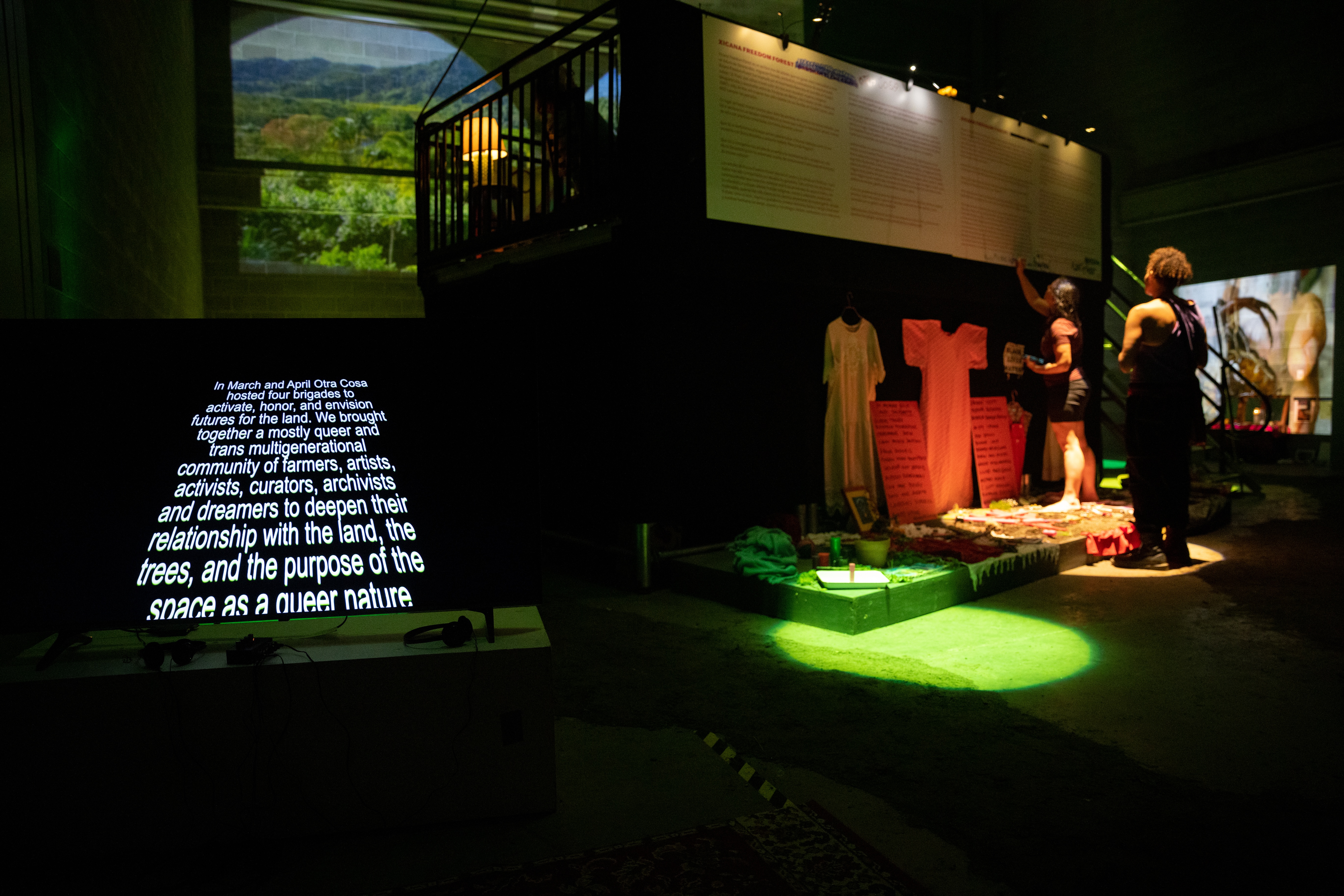
Architect, activist, and farmer, Tara Rodríguez Besosa, and collaborators, have created an installation and resource center to introduce the public to OtraCosa, an off-grid DIY queer homestead in the rural, mountainous community of San Salvador, Puerto Rico. For the past year, Tara and others have been observing, cohabitating, and deepening with the beings and ecosystems of OtraCosa, creating a decolonized, living manuscript of the different human and nonhuman exchanges that provide nourishment, healing, and life. Tara, inspired by the Drake Manuscript, is creating their own decolonized version of a living manuscript, handmade by them and others through their daily lives. During the festival, visitors will be welcomed to the OtraCosa installation/manuscript, inviting us to explore the principles and practices of OtraCosa and those who steward its land.
TANIA EL KHOURY
Memory Of Birds
Memory of Birds is an interactive sound installation in trees in collaboration with a trauma therapist and migrating birds. The work explores political violence that literally and figuratively gets buried in contested lands. A guided somatic experience, Memory of Birds is a work that eats itself, designed to be forgotten.
KITE MFA ’18
AĞÚYABSKUYELA

Sharing cakes at funeral wakes is a practice common amongst the Lakhˇóta people; often, these cakes have an image of the deceased imprinted in the frosting. Kite, an Oglála Lakhˇóta performance artist and composer, explores this tradition in a performance in which she decorates funerary cakes made from local Indigenous ingredients while speaking with friends, relatives, and elders about traditions, kin, land, and species they have lost. As we face death in the world, Kite hopes to turn towards protocols for mourning to process the death of beings, human and nonhuman. Cake and coffee will be served.
Network Projects
Learn MoreSupported by the Center for Human Rights and the Arts at Bard (CHRA), three Network Projects related to the LAB Biennial are happening across the globe. Umhlaba Wolahleko in South Africa, curated by Boyzie Cekwana; Ecotone: Chagras, Payaos, Camellones in Colombia, curated by Juliana Steiner and Revolutionary Letter #7 in Palestine, curated by Emily Jacir. These international curatorial projects are site-responsive and in collaboration with local students and faculty in the Open Society University Network.
Video Commissions
Works from Ama Josephine Budge, Brian Lobel with Season Butler, Alexandre Paulikevitch, and Emilio Rojas with Pamela Sneed
CHRA has commissioned international artists to create digital commissions on the politics of food. First released online in 2022, these four videos were on display during the festival.
View the Video CommissionsFestival Blog
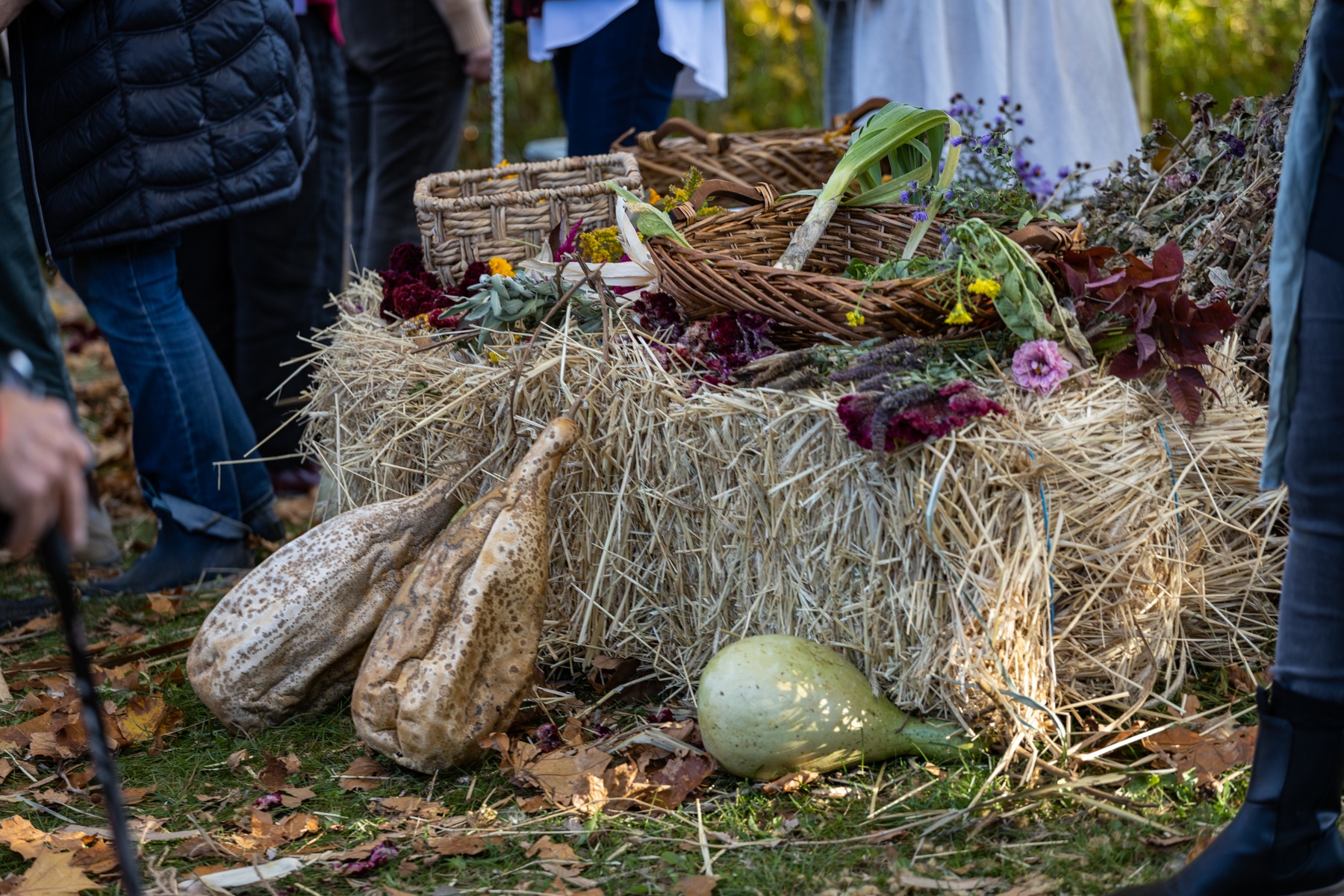 Learn more about the artists and projects of Common Ground, on the festival blog by curatorial fellow Melina Roise ’21.
Learn more about the artists and projects of Common Ground, on the festival blog by curatorial fellow Melina Roise ’21.
Syllabus
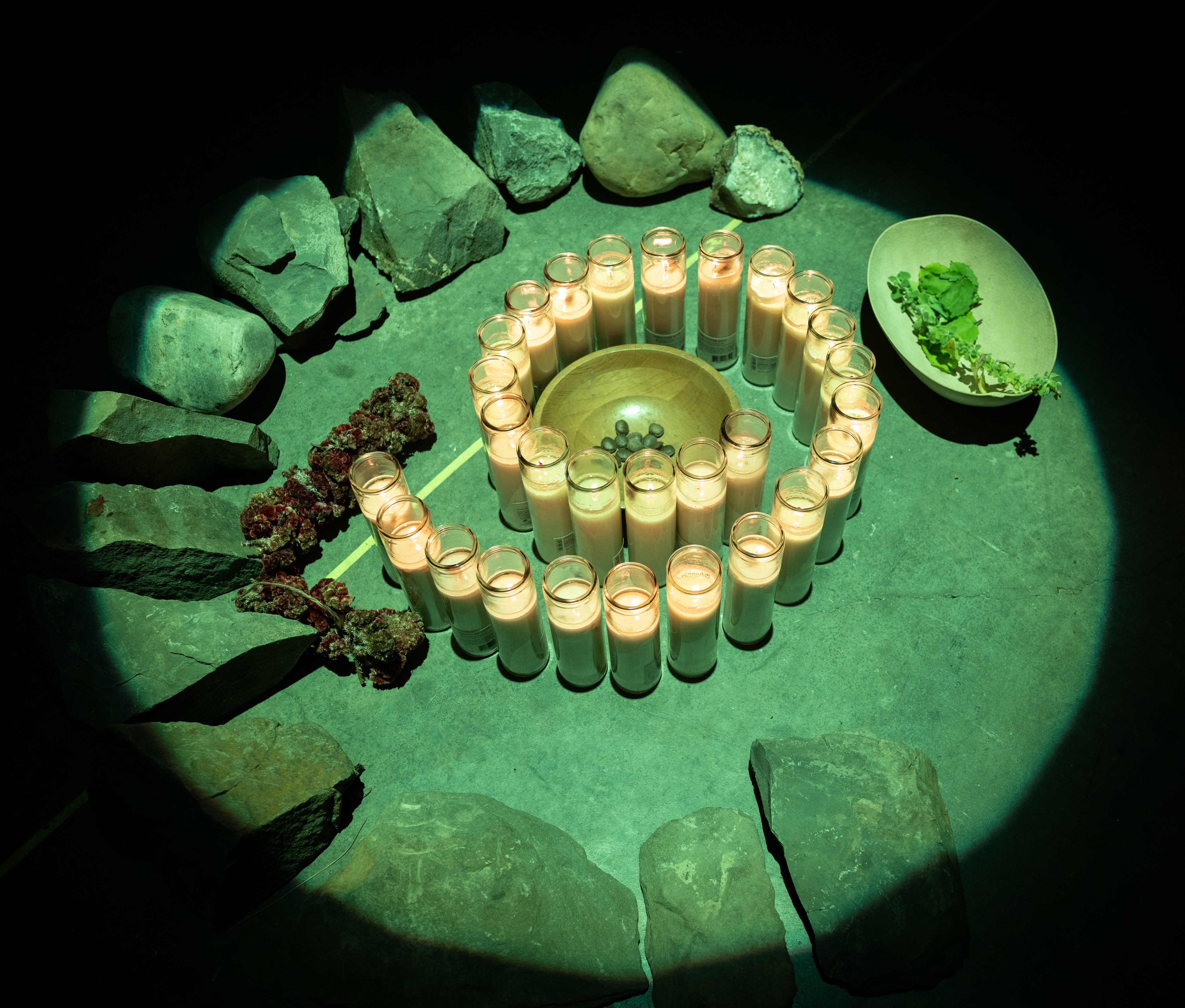 As a continuation of syllabi created during the 2014 and 2019 editions of the Biennial, the festival syllabus situates the commissions and programming of the Biennial within larger political, geographical, and ecological contexts. This year, the syllabus aims to be a fertile ground for rigorous and diverse interdisciplinary discussions surrounding food and land politics, which transcend typical academic disciplines and provide layered entry points of colonization, Indigeneity, incarceration, Blackness, disability, and traditional knowledge ways, to start.
As a continuation of syllabi created during the 2014 and 2019 editions of the Biennial, the festival syllabus situates the commissions and programming of the Biennial within larger political, geographical, and ecological contexts. This year, the syllabus aims to be a fertile ground for rigorous and diverse interdisciplinary discussions surrounding food and land politics, which transcend typical academic disciplines and provide layered entry points of colonization, Indigeneity, incarceration, Blackness, disability, and traditional knowledge ways, to start.
While the festival remains geographically international, with homage to the historically agricultural Hudson River Valley, the syllabus continues themes brought forth within the last edition of the biennial, the 2019 Live Arts Bard (LAB) Where No Wall Remains Festival. We situate ourselves on the banks of the Mahicantuck to continue to think about and around border politics, migration, and movement, and the many ways we relate to land.
Our hope is that this syllabus finds homes along rivers in Annandale and abroad, serving the Bard undergraduate and graduate communities, and to expand upon increasing interest of students and faculty “thinking with” place, soil, and our dinner plates.
—Melina Roise ’21, Curatorial Fellow
Explore the Syllabus
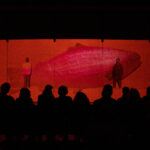
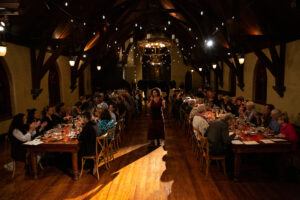
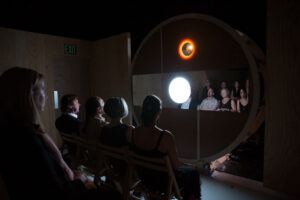
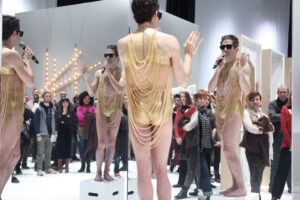
![When [Salmon Salmon [Salmon]]](https://fishercenter.bard.edu/wp-content/uploads/2022/10/Cooking_Sections_2022_10_14_226-scaled.jpg)
